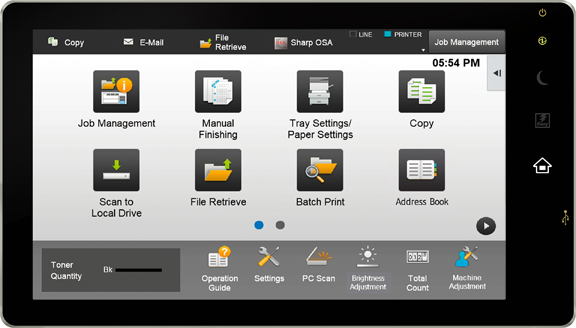When you’re running a business, every decision you make has to pull its weight. You want tools that help you grow—not ones that eat away at your budget. For small to medium-sized businesses (SMBs), finding the sweet spot between great service, smooth operations, and cost control has always been a challenge. Fortunately, Voice over Internet Protocol (VoIP) technology now gives SMBs access to enterprise-grade communication tools—at a price that’s flexible and affordable enough to grow right alongside your business.
If you’ve been wondering how VoIP can help take your business communications to the next level, keep reading. We’ll break down the benefits, how it works, and the ways it can empower your team without stretching your budget thin.
Why VoIP Makes Sense for SMBs
Traditional phone systems weren’t exactly built with flexibility in mind. They’re expensive to install, even more expensive to maintain, and they don’t scale well as your business grows. VoIP flips that script.
With VoIP, your phone service runs over the internet, which cuts out the need for costly landlines or clunky hardware. But the real value goes beyond cost savings. It’s about getting access to modern features that support the way your team actually works—especially if you have remote employees, multiple locations, or a lean IT team.
How VoIP Gives SMBs an Edge
1. Cost Savings Like Never Before
For SMBs, every dollar counts. With VoIP, you can significantly cut down on communication costs. Traditional phone systems often come with high setup fees, maintenance charges, and long-distance call expenses. VoIP removes much of that overhead. Matter of fact, businesses have seen their phone bill drop by up to 30% when they switch.
With VoIP, you get a predictable monthly bill and no surprise fees. Plus, whether you’re calling across town or the globe, flat-rate pricing and flexible pay-as-you-go options make it easy to keep costs in check.
2. Scalability to Match Your Growth
Your business won’t stay the same size forever, and neither should your communication system. VoIP’s easy scalability makes it an attractive option for businesses. For example, if you’re hiring a new team member or setting up a new location, adding an extra phone line or user is simple and doesn’t require costly hardware upgrades.
Additionally, if seasonal demand impacts your business, VoIP makes it easy to adjust capacity on demand. You can ramp up during busy months and scale back when things slow down—without committing to long-term expenses you don’t need.
3. Big Business Features for Small Budgets
One of the best parts about VoIP is that it’s packed with tools that you’d normally think would be reserved for big enterprises only. All without the hefty price tag. VoIP unlocks a range of features that were once out of reach for small businesses, such as:
- Auto Attendants: Set up a professional greeting and automatically route calls to the right person or department—even if you don’t have a dedicated receptionist.
- Call Forwarding & Mobility: Whether you’re working from home, in the office, or on the go, VoIP makes it easy to take business calls from your mobile device or laptop.
- Call Analytics: Want insights into your customer service performance? VoIP’s analytics tools can track call metrics, like duration, volume, and peak times, so you can optimize staffing and service.
- Voicemail to Email: Get voicemails sent directly to your inbox so you can listen, save, or forward them without dialing in.
- Call Recording: Great for training or quality control, and often essential in industries like finance or legal.
For growing businesses, features like these can mean faster customer response times, better collaboration, and a more professional image.
Getting Started with VoIP
Switching to VoIP doesn’t have to be complicated. With today’s plug-and-play systems—like the ones we offer—you can be up and running in no time. Plus, our sales team guides you through every step, so you’re never left guessing.
When evaluating providers, keep these factors in mind:
- Pricing and Plans: Ensure the plan meets your budget without any hidden fees. Free trials or month-to-month plans are a great way to test the waters.
- Features: Focus on what matters most to your operations—whether it’s advanced call routing, voicemail-to-email, or multi-device compatibility.
- Support and Reliability: A reliable system and responsive customer support can make all the difference. Choose a provider with a track record of uptime and fast assistance.
- Scalability: Your phone system should grow with you. Ensure it’s easy to add new users or features as your needs evolve.
If you’re ready to explore VoIP, we’re here to make the process smooth and stress-free. From installation and setup to quick, ongoing support, our local team is committed to getting you connected—and keeping you connected. Contact us to get started.



